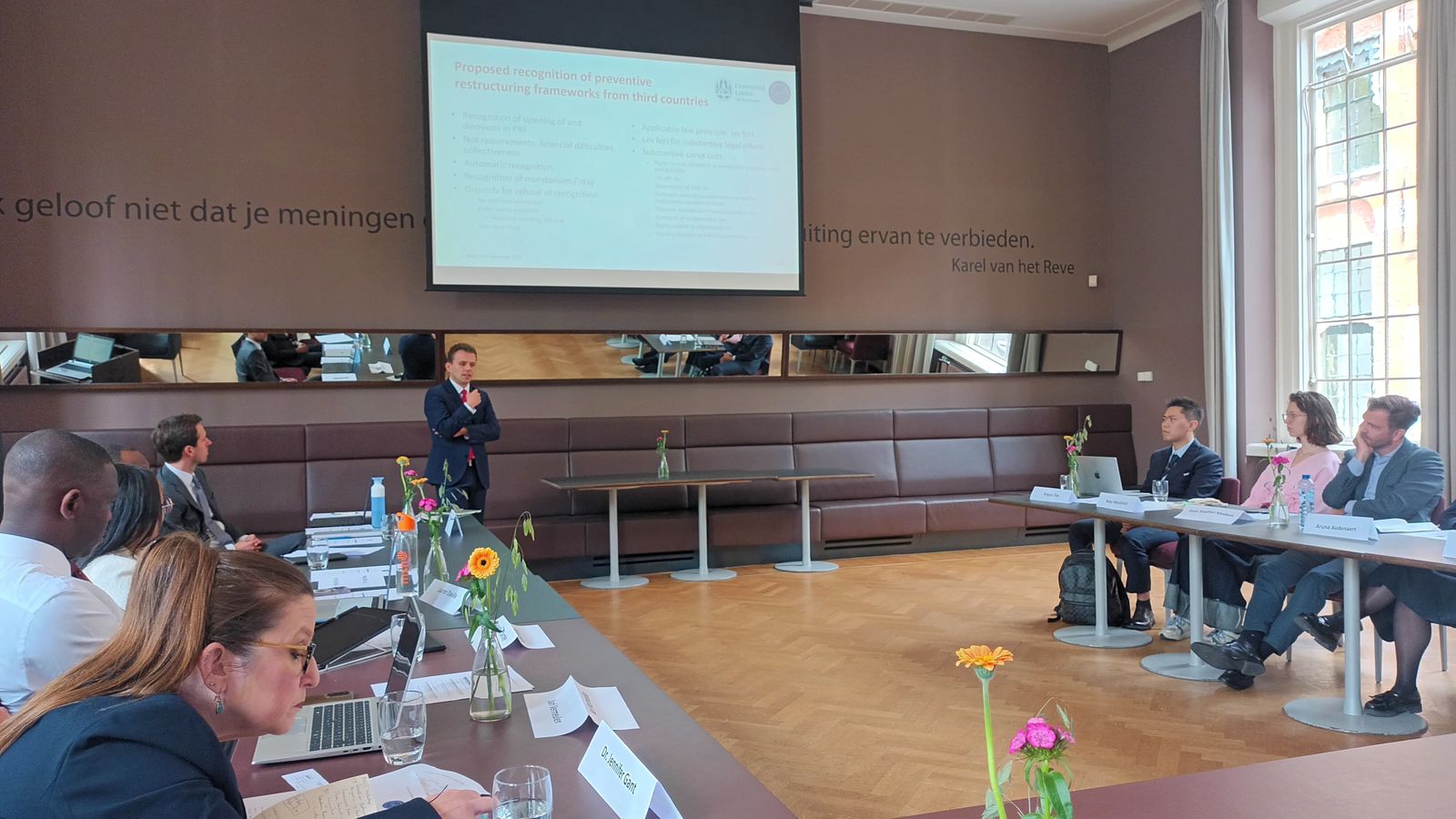Despite the introduction of the Preventive Restructuring Directive (Directive (EU) 2019/1023, “PRD”) and Brexit, forum shopping for restructuring remains a prevalent topic in EU Member States. The UK has not lost its reputation as a restructuring hub for continental European companies, but has now become a “third country” from an EU point of view. This constitutes a problem because from a German law perspective, and for many other Member States alike, the recognition of restructuring proceedings from third countries in general is highly debated. This is exemplified by a recent ruling by a German court refusing recognition of a UK Part 26A restructuring plan, which came as a surprise to many players in the restructuring landscape. While the judgement is preliminary and under appeal, it highlights the importance of some yet undiscussed matters regarding the recognition of restructuring proceedings.
Background
The European Insolvency Regulation (Regulation 2015/848, “EIR”) sets out a series of common rules to deal with cross-border insolvencies. The PRD does not explicitly address the recognition of preventive restructuring proceedings. However, it states in Recital 13 that it aims to facilitate the cross-border recognition of proceedings in accordance with the EIR. Consequently, several (public) preventive restructuring proceedings from Member States have been incorporated in Annex A of the EIR, which lists the proceedings covered by the Regulation. They now benefit from the automatic recognition rules contained therein. Still, it remains unclear how non-public preventive restructuring proceedings from Member States should be recognised and enforced.
Ending forum shopping?
The EIR only provides common rules for proceedings which are conducted in an EU Member State. Hence, the recognition of preventive restructuring proceedings from third countries, where the principle of mutual trust between the Member States is lacking, is subject to domestically applied private international law rules. In this regard, the German legislator, as well as many other Member States, has not established private international law rules dealing with cross border restructurings in its implementation of the PRD (Unternehmensstabilisierungs- und -restrukturierungsgesetz, “StaRUG”). This has raised several key issues, as exemplified below. In August, a German court had to decide on the recognition of a UK Part 26A restructuring plan (LG Frankfurt/Main, 22 August 2025, 2-12 O 239/24, Zeitschrift für Restrukturierung und Insolvenz (ZRI) 2025, p. 934-937). In the absence of specific rules for restructuring plans, it assessed various routes to recognition in line with German legal literature (e.g. Skauradszun/Kümpel/Schröder, Zeitschrift für Wirtschaftsrecht (ZIP) 2024, p. 665-677; Thole, Zeitschrift für Restrukturierung und Insolvenz (ZRI) 2024, p. 790-794). To do so, it primarily analysed two potential sets of rules, which could be applicable to this issue: the German Insolvency Code (“InsO”) and the German Code of Civil Procedure (“ZPO”). Contrary to some prominent voices, but aligned with previous German case law regarding the UK scheme of arrangement, it refused recognition as a foreign insolvency proceeding under national insolvency law (Sec. 343 InsO). This was primarily based on the fact that the restructuring plan did not include all creditors of the debtor and was thus not regarded as a “collective proceeding” as InsO requires. The court did not comprehensively rule on the recognition as a foreign judgement according to German civil procedural law (Sec. 328 ZPO). It held that the defendant was already not able to provide admissible evidence for reciprocity (i.e. recognition of an equivalent German proceeding in the UK) as ZPO requires. Consequently, recognition as a civil law judgment was also denied. The judgement took many market participants by surprise, as the restructuring of German-based debtors via a UK scheme of arrangement or restructuring plan is common practice (Lürken, Fachdienst Insolvenzrecht (FD-InsR) 2025, 815216). It is important to note that the judgement was issued by a court of first instance and as a preliminary judgement (Vorbehaltsurteil). An English ruling has already disregarded the German judgement in the context of another restructuring plan concerning a German company (Re Standard Profil Automotive GmbH [2025] EWHC 2313 (Ch)). The English ruling emphasised that the Hague Choice of Court Convention of 2005 and the Hague Judgments Convention of 2019 could also be possible routes to recognition in this specific case, which are likely not applicable in the LG Frankfurt/Main case. As a consequence, the English court ruled that there was a reasonable prospect of the international effectiveness of the restructuring plan.
Broadening the view
There are valid arguments for and against each route to recognition, which are directly linked to fundamental questions of restructuring law. These include questions regarding the relationship to insolvency law, the role of the involved parties, and the role of the court. From a civil law perspective, one might further ask whether courts are authorised to grant recognition without a statutory basis. The debate has frequently overlooked that each route to recognition leads to different outcomes for the affected parties. International insolvency law often excludes rights in rem (e.g. Art. 8 EIR) and other matters, such as immovable property or employment contracts. Recognition regimes for civil law judgements usually lack such safeguards and rely merely on a public policy exception. Interestingly enough, the Hague Judgments Convention of 2019 excludes rights in rem in immovable property (Art. 6). Further research is needed regarding the effects of recognition in restructuring contexts. On the one hand, fewer hurdles could improve efficient debt restructurings. On the other hand, there could be protection-worthy expectations of domestic creditors that their claims are not modified under foreign law. The German StaRUG is currently under evaluation and it is likely that the German legislator will address some of the raised questions in the upcoming year. Similarly, the EIR will soon be evaluated and preventive restructuring proceedings or third-country insolvency proceedings could be up for debate. The current LG Frankfurt/Main case shows that a clarification or reform by the legislator would be helpful for the restructuring landscape.


*Sebastian Böhning is Ass. iur., PhD Candidate at Fulda University and Martin Luther University Halle-Wittenberg
About BWILC and the PhD Workshop
This research was presented and discussed at the last PhD Workshop on European and International Insolvency law, organised by the Stichting Bob Wessels Insolvency Law Collection (BWILC). Since 2018, BWILC maintains the private insolvency law book collections of Prof. em. Bob Wessels, extended with the collections of the late Prof. Ian Fletcher and the late Gabriel Moss QC, in addition to books that have been kindly donated by scholars and practitioners from around the world. To browse or visit this unique collection, click here.
Since 2019, BWILC organises an annual PhD Workshop for PhD students from Europe and beyond. At this workshop, PhD candidates can present their ideas, but also the challenges and questions they are confronted with in a two-day workshop attended by their peers and senior academics. At the end of the workshop, organised in alternately in Leiden and another city, prizes are awarded for the best presentations.

